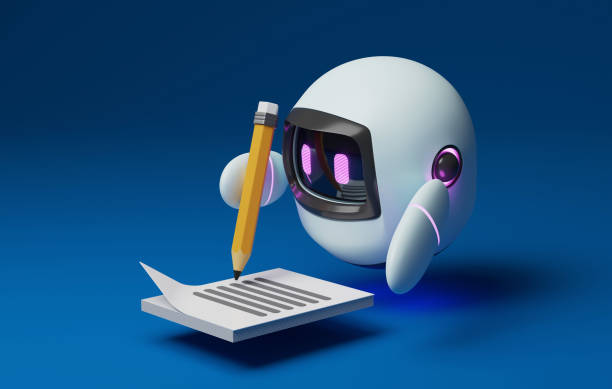The world of artificial intelligence has seen tremendous growth over the past decade, particularly in the realm of natural language processing (NLP). Among the myriad of innovations, AI chatbots have emerged as a pivotal tool for businesses, educators, and individuals alike. OpenAI’s ChatGPT has been a frontrunner in this space, renowned for its ability to generate human-like text and provide meaningful interactions. However, the landscape is rich with competition, and several other AI chat models have risen to prominence. In this blog post, we’ll explore the top ChatGPT competitors in AI chat and what makes them stand out.
1. Google Bard
Google, a titan in the tech industry, has not lagged in the AI chat race. Their offering, Google Bard, is designed to generate creative and engaging content. Bard leverages Google’s extensive data resources and advanced machine learning algorithms to create poetry, stories, and other creative content. One of Bard’s strengths lies in its ability to understand context deeply, thanks to its integration with Google’s search engine and vast knowledge base. This makes it an excellent tool for content creators and marketers looking for innovative ways to engage their audiences.
2. Microsoft’s Bing Chat
Microsoft has entered the AI chat market with Bing Chat, an AI assistant integrated into its Bing search engine. Bing Chat is built on top of large language models and is designed to provide concise, informative responses to user queries. One of its standout features is its ability to handle a wide range of tasks, from answering simple questions to performing complex searches. Additionally, Bing Chat’s integration with Microsoft Office products allows it to assist users with tasks such as drafting emails, creating documents, and more, making it a valuable tool for productivity.
3. Anthropic’s Claude
Anthropic, an AI safety and research company, has introduced Claude, an AI chat model designed with safety and ethical considerations at its core. Named after Claude Shannon, the father of information theory, Claude aims to provide reliable and safe AI interactions. One of its key features is its emphasis on transparency and user control, allowing users to understand and influence how the AI generates responses. This focus on ethical AI makes Claude a strong contender for organizations and individuals concerned about AI safety and bias.
4. Meta’s BlenderBot
Meta, formerly known as Facebook, has developed BlenderBot, an advanced chatbot designed to mimic human conversation more closely than previous models. BlenderBot stands out for its ability to maintain long-term coherence in dialogues and its capacity to express empathy. This makes it particularly useful in customer service and support roles, where understanding and responding to user emotions can significantly enhance the user experience. BlenderBot’s open-source nature also allows developers to customize and improve the model, fostering a community-driven approach to AI development.
5. Amazon’s Alexa Conversations
Amazon’s Alexa Conversations is a feature within the Alexa ecosystem that leverages AI to enable more natural and complex interactions between users and devices. Unlike traditional voice assistants that follow a strict command-response structure, Alexa Conversations can handle multi-turn dialogues, making the interactions feel more conversational and less robotic. This advancement is particularly beneficial in smart home settings, where users may need to give multiple instructions in a single conversation. Alexa Conversations’ ability to integrate with various services and devices further enhances its utility and appeal.

6. IBM Watson Assistant
IBM’s Watson Assistant is a robust AI chatbot solution designed for enterprise use. Known for its versatility and integration capabilities, Watson Assistant can be customized to fit various business needs, from customer service to IT support. One of its distinguishing features is its ability to integrate with existing business systems, such as CRM and ERP software, providing a seamless user experience. Watson Assistant’s advanced natural language understanding (NLU) capabilities enable it to handle complex queries and provide detailed, contextually relevant responses, making it a powerful tool for businesses looking to enhance their customer engagement.
7. Replika
Replika is an AI chatbot designed primarily for personal use, offering users a unique blend of companionship and mental health support. Unlike many other chatbots focused on productivity or information retrieval, Replika aims to build an emotional connection with users. It learns from each interaction, becoming more attuned to the user’s personality and preferences over time. This personalized approach makes Replika a popular choice for those seeking a supportive and empathetic conversational partner, particularly in times of loneliness or stress.
8. Xiaoice by Microsoft Asia
Xiaoice, developed by Microsoft Asia, is an AI chatbot that has gained immense popularity in China and other Asian markets. Known for its emotional intelligence and ability to engage users in meaningful conversations, Xiaoice has been used in various applications, from virtual companionship to content creation. One of its standout features is its ability to generate original poems, stories, and even songs, showcasing a high level of creativity and linguistic prowess. Xiaoice’s success highlights the importance of cultural context and localization in AI chatbot development.
9. Rasa
Rasa is an open-source AI chatbot framework that allows developers to build and deploy custom chatbots tailored to specific use cases. Unlike pre-trained models, Rasa provides the flexibility to create chatbots that can understand and respond to domain-specific language and context. This makes it an excellent choice for businesses with unique requirements or those operating in niche industries. Rasa’s community-driven approach and extensive documentation make it accessible for developers of all skill levels, fostering innovation and collaboration in the AI chatbot space.
10. Jasper AI
Jasper AI, formerly known as Jarvis AI, is a content creation platform that leverages AI to assist users in generating high-quality written content. While not a traditional chatbot, Jasper’s advanced NLP capabilities allow it to engage users in interactive writing sessions, providing suggestions and improvements in real time. This makes it a valuable tool for writers, marketers, and businesses looking to streamline their content creation processes. Jasper AI’s focus on creativity and collaboration sets it apart from other AI tools, highlighting the diverse applications of AI in enhancing productivity and creativity.

Conclusion
The AI chatbot landscape is vibrant and continually evolving, with numerous contenders pushing the boundaries of what is possible with artificial intelligence. From enhancing productivity and customer service to providing companionship and creative support, these AI chatbots offer a wide range of capabilities to meet diverse needs. As AI technology continues to advance, we can expect even more innovative solutions to emerge, further transforming the way we interact with machines and each other. Whether you’re a business looking to improve customer engagement or an individual seeking a virtual companion, there’s likely an AI chatbot out there that’s just right for you.







